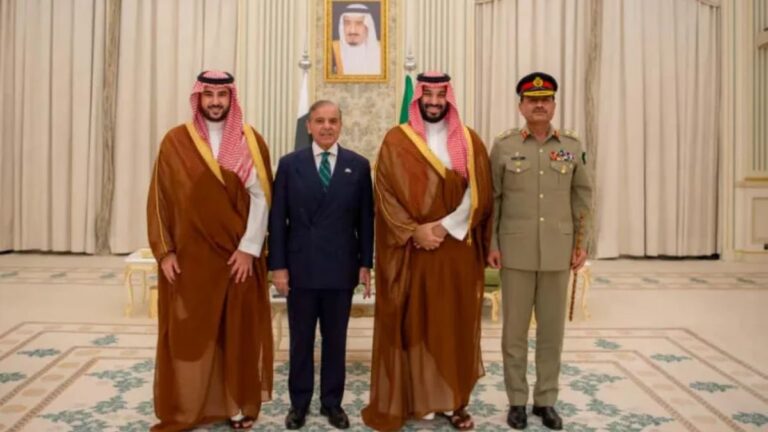
Russian Orthodox Patriarch Kirill, center, delivers the Christmas service in the Christ the Saviour Cathedral in Moscow
While much of the world celebrates Christmas on December 25, Orthodox Christians in Russia and some other countries observe the holiday on January 7. This difference arises due to the use of different calendars and historical traditions, further influenced by cultural and geopolitical factors.
Why is Christmas Celebrated on January 7?
- Julian vs. Gregorian Calendar:
- Until the late 16th century, the Christian world followed the Julian calendar introduced by Roman Emperor Julius Caesar in 46 BC.
- However, this calendar overestimated the solar year by 11 minutes, causing a misalignment with the actual solar year over time.
- To address this, Pope Gregory XIII introduced the Gregorian calendar in 1582, which better aligned with astronomical observations.
- Orthodox Church’s Adherence:
- While most of the Christian world adopted the Gregorian calendar, Orthodox Christians, including the Russian Orthodox Church, have continued to use the Julian calendar. The Greek Orthodox Church, however, switched to the Gregorian calendar in 1923, and thus celebrates Christmas on December 25. Similarly, the Orthodox Church in Jerusalem follows the Gregorian calendar.
- By 1923, a 13-day gap had developed between the two calendars, placing Orthodox Christmas on January 7.
Christmas Traditions in Orthodox Christianity
1. Fasting and Feasting: Orthodox Christians observe a 40-day fast leading up to Christmas, refraining from meat and alcohol. The fast ends with a special meal on Christmas Eve (January 6), which is meat-free and includes 12 traditional dishes symbolizing the 12 apostles. A central dish is kutia, a cold porridge made from wheat, poppy seeds, raisins, walnuts, and honey. Other dishes often include fried fish, beetroot soup, beans, and cabbage. The fast culminates in a festive feast on January 7, with many Orthodox Christians attending midnight mass on Christmas Eve before celebrating.
2. Epiphany and Christmas Eve: For Orthodox Christians, January 6 marks the beginning of Christmas celebrations, while Catholics celebrate the Epiphany on this date. The Epiphany commemorates the visit of the three wise men to the infant Jesus. Orthodox Christians fast until the first star appears in the night sky on January 6, symbolizing the birth of Christ. They greet each other with “Christ is born!” and respond with “Glory to him!”
3. Gift-Giving: In contrast to Catholic Christmas traditions, Orthodox Christians typically do not exchange gifts on Christmas Day. Instead, gifts are given on St. Nicholas Day (December 19) or New Year’s Eve (December 31).
4. Vertep: In countries like Ukraine, the period between January 6 and January 19 is marked by “Vertep”, a traditional street puppet theatre performance based on the nativity story. This lively tradition, which includes singing and dancing, has become increasingly popular, especially among children.
5. The Day of Epiphany: Orthodox Christians in countries like Bulgaria and Greece celebrate the Epiphany on January 19 according to the Julian calendar. This day is observed with a special ceremony where priests throw crucifixes into rivers or lakes, and the faithful dive in to retrieve them.
6. Unique Customs: In addition to the traditional feasting and fasting, Orthodox Christmas celebrations often include unique customs such as:
- Caroling: Going door-to-door singing Christmas carols.
- Decorating Homes: Many Orthodox communities decorate their homes with wheat sheaves.
- Burning Oak Branches: In Serbian Orthodox traditions, burning oak branches is a symbolic ritual.
Ukraine’s Shift to December 25
- Religious and Geopolitical Context:
- Historically, the Russian Orthodox Church has dominated Ukraine’s religious sphere.
- Amid the Russia-Ukraine conflict, Ukraine sought to assert its independence by changing its Christmas celebration to December 25 in 2023.
- Legislative Action:
- The Ukrainian government passed a law in July 2023, signed by President Volodymyr Zelenskyy, to adopt December 25 as Christmas Day.
- The move symbolized a desire to establish distinct traditions, separate from Russian influence.
Ban on the Ukrainian Orthodox Church (UOC)
- Government Actions:
- In August 2024, Ukraine banned religious organizations linked to Moscow, including the UOC.
- The UOC was accused of supporting Russia during the ongoing conflict, leading to criminal investigations against its clerics.
- Formation of the Orthodox Church of Ukraine (OCU):
- The OCU, formed in 2018, aligns with Ukraine’s independent stance and also celebrates Christmas on December 25.
Future Changes for Christmas Celebration in Russia
- Calendar Divergence:
- The Julian and Gregorian calendars continue to diverge. By 2100, the gap will increase to 14 days, pushing Russia’s Orthodox Christmas to January 8.
- This change will be inevitable unless the Russian Orthodox Church adopts a different calendar.
Conclusion
Orthodox Christmas on January 7 is a reflection of historical, cultural, and religious differences that persist across the Christian world. For countries like Ukraine, altering the date of Christmas also serves as a declaration of independence from historical influences, particularly in times of geopolitical conflict. The traditions and practices surrounding Orthodox Christmas remain a testament to the rich diversity within global Christianity.
Relevance for UPSC
The topic of Orthodox Christmas celebrations and Ukraine’s shift to December 25 is relevant for UPSC CSE, particularly in International Relations (GS Paper II) and Indian Polity (GS Paper II), as it highlights issues of national identity, religious freedom, and geopolitical relations. It also ties into social issues (GS Paper I) and cultural diversity, showcasing how traditions and religious policies influence national governance.
Also Read: Joe Biden Awards Presidential Medal of Freedom to Hillary Clinton, George Soros and Lionel Messi
Disclaimer: The information provided is for educational purposes and general awareness, particularly for UPSC aspirants. For specific medical advice or updates, consult authorized health agencies.
Follow Fusion IAS


